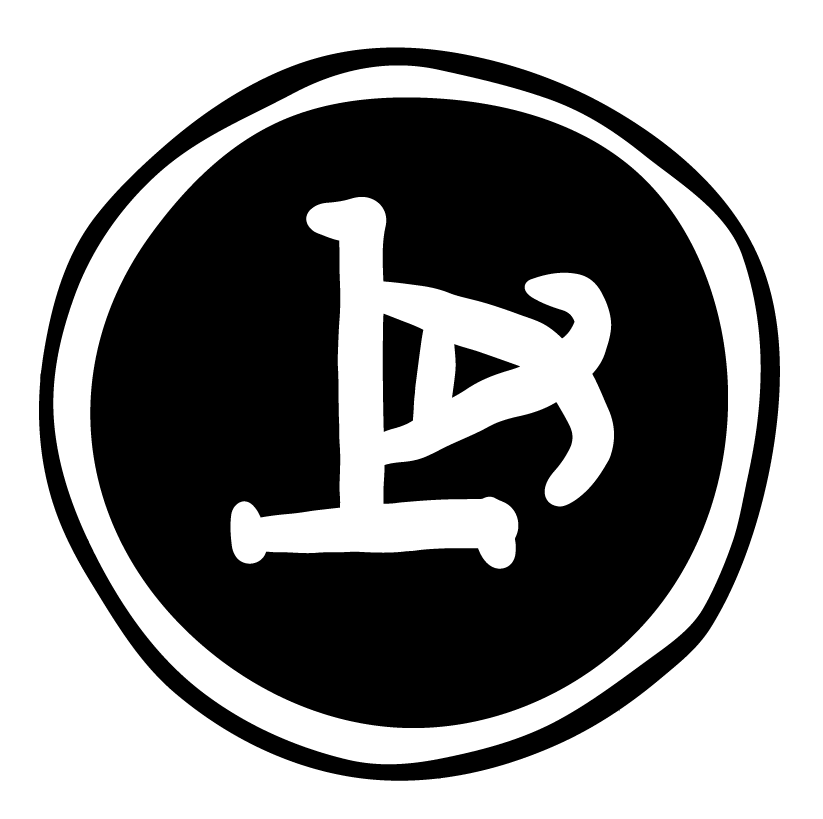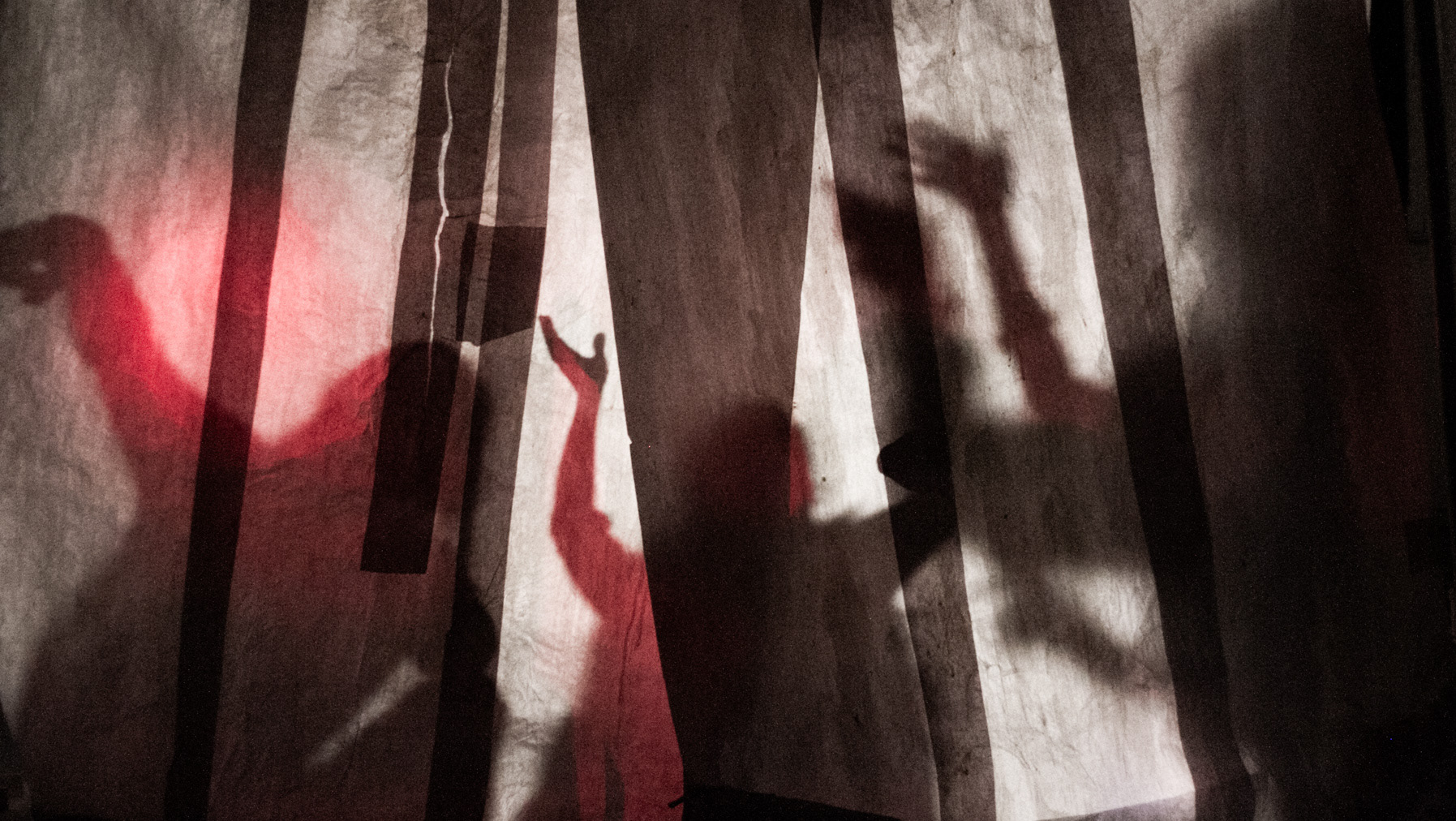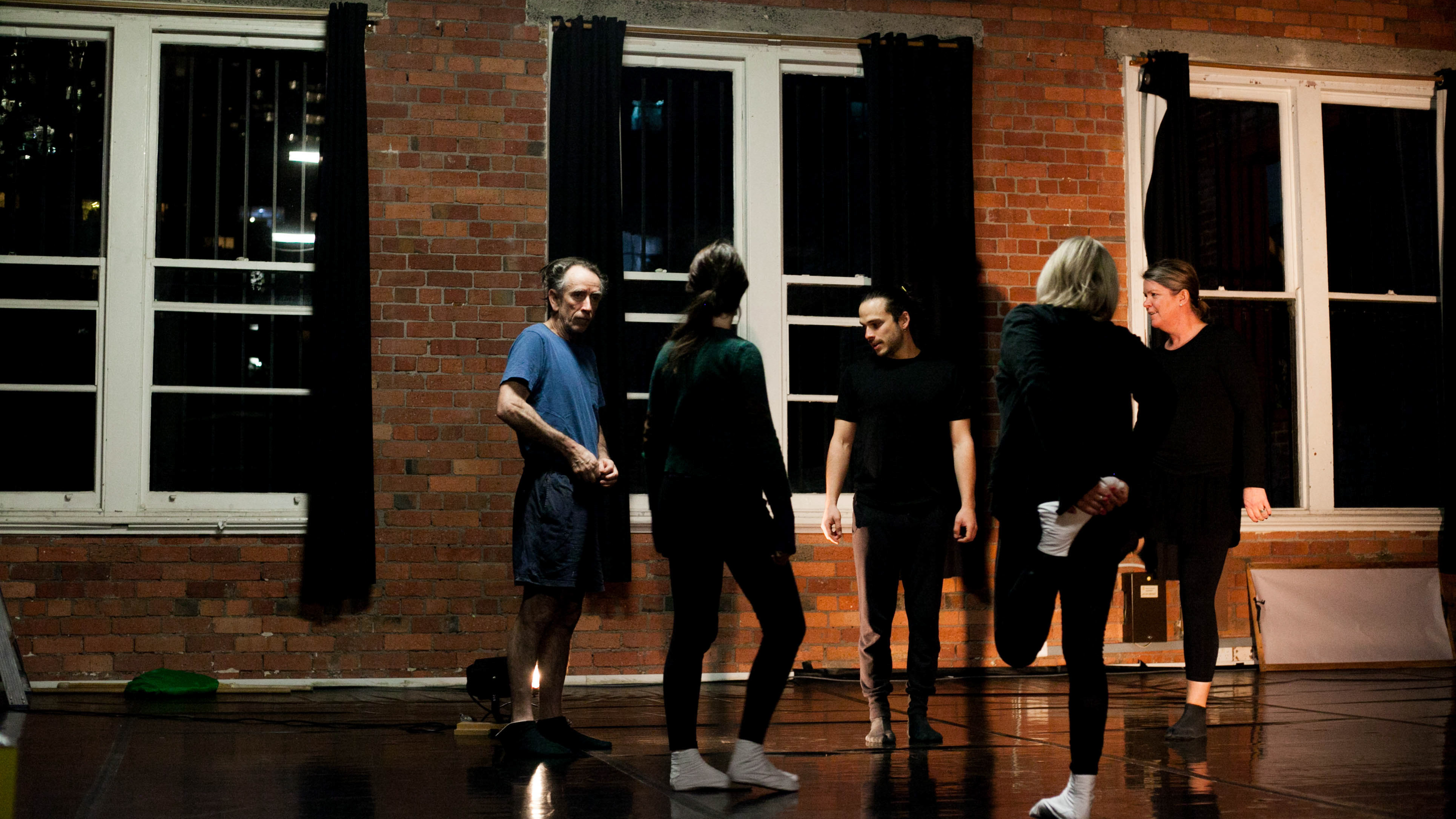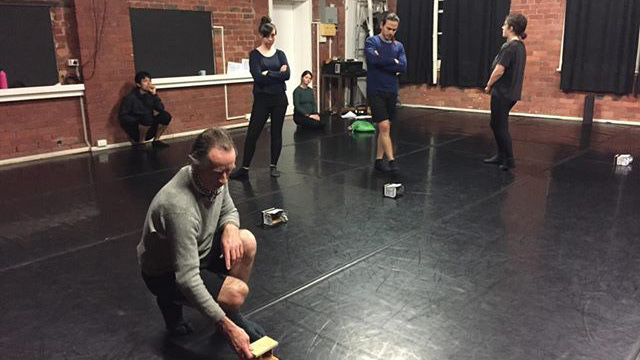2024 Workshop—note to participants after four of six sessions; edited 20240112
Clockwise: Matthew Crosby, Kei Murakami, Damon Branecki, Vanessa Jo Di Natale, Spira Stojanovik, David Blom, Tessa Marie Luminati, Vania Octaviani, Alexandra Clouston, Caz Dawes, Niki Domeney.
Photo: Matthew Crosby. Workshop wrap 27/01/2024
Photo: Matthew Crosby. Workshop wrap 27/01/2024
Remembering Grotowski’s definition of a spectrum between ‘organic’ and ‘artificial’, the workshop circumstance might itself be considered artificial… or at least is only ever momentarily organic.[1] Were I directing a performance and you participants had all joined as an ensemble to produce a new work called ‘Terrifying Feet’, we would suppose a unity in our purpose. Even if the work started without a script, if we were co-devising from scratch with all the unknowns such a process implies, we would nevertheless share a commitment to develop a practice that became performance. It would take far more than two weeks, probably more like two years.
So, when I read my notes on the Monday session last, I read scraps of text that riff on what I saw, notes that evaluate, that strategize and so on. And I write this note feeling the responsibility of a workshop facilitator and leader who should provide notes that will provide performers with strategies for… development of practice—skills, perhaps provide tools that will develop performance. I feel the responsibility to provide some coherence where, if we were devising, I know it would be too early to do so. The diverse voices in the room would need to be heard first.
On the first day of the workshop, I outlined my agenda that arises from my performative experience and received influences. I think I stated a caution that I must pursue that agenda because it is all I know, but that it may not agree with the agendas that participants brought. I encouraged everyone to consider that and to negotiate it in terms of individuated artistic journeys.
So, I consider the systems, rules, the rituals of my theatre that I impose on the room to be the artificiality that forms a structure for our practice, and I consider it imperative for that structure to be recognised as mine, to be used or adapted or subverted to advantage.
Having said that, I will now provide a strategy that I think we should follow to reap the best advantage available to us for the last two sessions. I hope that it will align and indeed facilitate diverse expressions that I consider to be yet untapped. Generally, I think the note I have to offer is simple and achievable and it goes to the heart of this business of my artificial structure and your organic offerings. I think that we have developed a sense of mutual trust in our short-lived group for the following to be a realistic request.
My strategy is to state that I implore everyone to use the artificial techniques, the rules and forms of Suzuki Training, the Grotowski notion of impulse, which is made intellectual by its verbal description and to step beyond their boundaries into the realm of the organic. To be clear, those theories and techniques of stillness, of resistance, of energy, of precision, of johakyu and ma, of resonance, of focus, of relation, of impulse, of self-examination… they are essential.[2] But I am still dissatisfied because I think these considerations, which are made artificial simply by throwing the light of investigation on them, are peculiarly prominent. As if their definitions and delineations have become like glad wrap stifling the organic degradations and exaltations that exist in all humans. While the work I am seeing is sporadically exquisite, I want everyone to find the reach of their physical, vocal and spiritual instrument and to extend.
This can be considered in very practical and perhaps banal ways. If you have not, as Jean Anouilh to this point shouted or screamed in spitting on Creon’s idea of happiness, then do so.[3] If you have not whispered a hidden resolve to reject mediocrity, please, rage forth. If you have not held a low statue until your legs and body shake, and your insides scream ‘stop’, then burn them. If you have not reached out to your colleague and pushed them, physically, emotionally or spiritually, if you have not risked shattering some social mask that was inadvertently brought on stage, smash it. If you have only skated on the shadow of your performer’s fears, stab them. Start being intrepid with yourself and with each other. I promise that we will all still be friends when we break bread at the end.
I was going to try to summarise the notes I had scrawled but the above kind of flowed out instead. To conclude, two sessions to go… I’m looking for surprises 😲 Some things:
*Extend the text of Four Steps: there might be something said at step one, two, three or four. (Regarding Grotowski's exercise called Four Steps outlined by James Slowiak and Jairo Cuesta.[4])
*Don’t forget, I asked for an interruption that came from outside. Some have this, others are completing the intention that initiated the first step. Give yourself time and license to stop during the journey—this will assist in impulse work. Points to remember: breath; atmosphere; speed; rhythm; dynamic shift; direction; level (height); relation; purpose; identity…
*To place what was stated; in Watching—Grotowski’s exercise which has commenced training on two occasions, the leader leads the changes to the next stage of the exercise.[5] At other times, performers should feel free to initiate.
*When it is possible in freeform movement, remember to stop, wait and begin. This gives the opportunity for impulsive changes that create surprising variations.*
*In one sense, Grotowski’s idea of ‘balance the space’ is a way of considering the composition of an improvisation.[6] Remember that a performer must produce their organic inner life while at the same time referring, relating and constructing with their colleagues.
*In Statues, it is possible to consider the sculptures non-spontaneously. You may rehearse them.[7] You may acknowledge habitual statues and consciously break out. (Tessa was encouraging this). You may use your favourite painting as a prompt. When the caller says ‘over to you’, it is possible to create variation with form and with speed.
*We will learn the remaining walks in the first part of Thursday’s session leaving us time to prepare for a full training session followed by work on Four Steps.
*Finally (!), would you like to invite friends and family to show work on Saturday? Let’s bring a plate for after the session.
Looking forward to seeing you tomorrow
Matt xx
Footnotes
[1] James Slowiak and Jairo Cuesta, ‘2 Grotowski’s Key Writings’, in Jerzy Grotowski (Florence, UNITED STATES: Routledge, 2007), 57, http://ebookcentral.proquest.com/lib/unimelb/detail.action?docID=292746.
[2] Nareeporn Vachananda, ‘Jo-Ha-Kyu: The Temporality of Improvisation’, Naree Vachananda, 20 February 2014, https://www.nareevachananda.com/pondering/jo-ha-kyu-the-temporality-of-improvisation.
[3] Jean Anouilh, ‘Antigone - A Tragedy’, trans. Lewis Galantière (Play, France, 1946), 42, https://aphunniblog.edublogs.org/files/2015/10/Anouilh_Antigone-4-odifms.pdf.
[4] James Slowiak and Jairo Cuesta, ‘4 Practical Exercises’, in Jerzy Grotowski (Florence, UNITED STATES: Routledge, 2007), 130, http://ebookcentral.proquest.com/lib/unimelb/detail.action?docID=292746.
[5] Slowiak and Cuesta, 130.
[6] Slowiak and Cuesta, 130.
[7] Matthew Crosby, ‘The Thursday Group - Suzuki Training Statues 2021’, Blog, The Thursday Group, accessed 12 February 2024, https://thursdaygroup.net/suzuki-training-statues-2021.
Bibliography
Anouilh, Jean. ‘Antigone - A Tragedy’. Play. Translated by Lewis Galantière. France, 1946. https://aphunniblog.edublogs.org/files/2015/10/Anouilh_Antigone-4-odifms.pdf.
Crosby, Matthew. ‘The Thursday Group - Suzuki Training Statues 2021’. Blog. The Thursday Group. Accessed 12 February 2024. https://thursdaygroup.net/suzuki-training-statues-2021.
Slowiak, James, and Jairo Cuesta. ‘2 Grotowski’s Key Writings’. In Jerzy Grotowski, 42–62. Florence, UNITED STATES: Routledge, 2007. http://ebookcentral.proquest.com/lib/unimelb/detail.action?docID=292746.
———. ‘4 Practical Exercises’. In Jerzy Grotowski, 119–63. Florence, UNITED STATES: Routledge, 2007. http://ebookcentral.proquest.com/lib/unimelb/detail.action?docID=292746.
Vachananda, Nareeporn. ‘Jo-Ha-Kyu: The Temporality of Improvisation’. Naree Vachananda, 20 February 2014. https://www.nareevachananda.com/pondering/jo-ha-kyu-the-temporality-of-improvisation.





